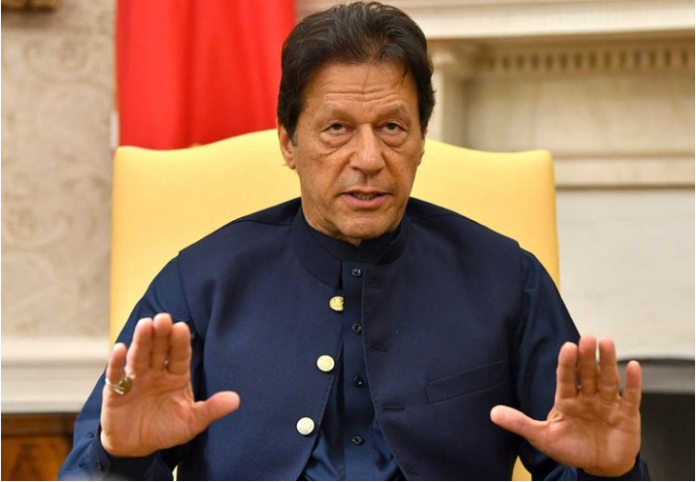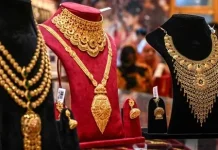Personal opinions trump unbiased analyses on TV. Hearsay shoves verification aside
HIGHLIGHTS
- Every night, there is the circus with some familiar faces. The formations of panels differ. A host, three panellists, and one topic worded in varying degrees of harshness and hostility.
- A host, one PTI politician acting as the spokesperson of the party, and two guests, either both from the rival Pakistan People’s Party and Pakistan Muslim League-Nawaz, or one politician and an analyst. A host and three “analysts”, mostly active or retired journalists.
And just as I settle down in my comfy old couch to take a much-needed hiatus from political commentary on Twitter, and in my columns, something jolts me un-dead in my typing tracks. While I look for Mufti Menk’s beautiful advice to retweet, lyrics to subtweet, movies to tweet-review, and gorgeous people and dogs to gush over, my weird luck pushes me to something I avoid like coronavirus-ridden droplets. I go on a binge watching of Pakistani prime time talk shows. My mind is in a tizzy now. And that, my darlings, is not a good thing in the time of coronavirus.
Retracing my TV viewing of the last two decades – as going further back is a waste of my carefully chosen words and the reader’s attention –here is my honest confession: I was and am a news and panel discussions and interviews junkie. Having been unusually interested in politics and movies all my life, print and electronic media was my curious and constant peep into the world of people I wished to be, some I idolised, many I couldn’t relate to, and some I didn’t like. Post the year 2000, Pakistan’s private TV channels opened a world of desi information and debate that I mostly liked, and occasionally criticised. I found it all utterly fascinating.
The power of nascent media spelled a new era of freedom in a country that had seen draconian measures of military dictators and civilian behemoths to control the “suitability” of news and promulgation of what and how much the public needed to know. Private media houses boomed as an interesting mix of the money-making corporate and the responsible journalist. Freedom of expression was the new mantra, guarded with an earnestness that appeared sincere and unapologetic. Like all good things, that earnestness had an expiration date.
The 24/7 news unfolded a new TV dynamic, and without much ado, strengthened the inevitability of the electronic media journalist assuming the shape of the new power wielder. Politics and media tiptoed into a union that was based on mutual need. The liaison engendered a new entity: the kingmaker.
The precision of that self-avowed title remains dubious, but the assumption, the illusion, the myopia of having the power to make or break a politician or a political party became an open secret, loudly whispered in the velvety splendour of Islamabad, purred in provincial capitals, hissed in every political centre. The co-dependence of politics and media soon turned into a fatal attraction that, invariably, ends in the demise or breakdown of one of the parties.
Talk shows to me were like children feasting on Baskin Robbins shakes. One day in 2012, I realised that what I was watching was not what had me hooked in the first few years of the new millennium. Now on TV, personal opinions trumped unbiased analyses. Hearsay shoved the due verification aside. Power agendas replaced honest journalism. Propaganda became more important than substance. Gratuitous attacks became the new norm. The prime-time talk show host had the power to construct a narrative, deconstruct the truth, reconstruct what was, reimagine what would be.
Slowly and steadily, loyalty acquired a price tag.
The payment came in various forms – material, privilege, favours, power. The earnest journalists with dreams of honouring media as the power of asking the right questions and accountability changed their wardrobe, moved into fancy houses, acquired new airs, and made new friends, awkwardly smug in their new SUVs, a sheepish smile barely reaching their eyes covering their cryptic proclamations.
Not everyone changed, but almost everyone did. Barring a few prime-time talk show hosts, most of them became caricatures of themselves. Many people detected the change. So did I. The talk shows became a nightly circus. I wrote about it in 2012.
After March 23, 2013, while working for a newspaper, I stopped watching television. I didn’t watch any news shows even when in 2014, briefly, I became a sensational headline in Pakistan and India. For years, I only played movies and workout DVDs on my TV. One day, my large-screen Sony stopped working. Since 2016, it nestles cosily in its familiar rectangular repose on the wall facing my bed across a large room. My TV is a black mirror now. It shows nothing.
The circus
I still follow news, but only through Twitter. Reading news is much less stressful than watching it. That is my coping mechanism for the happenings in my country, and the world in general. It keeps me calm. Whatever I want to watch is available on YouTube, and with one click it is paused, reversed, forwarded, discarded.
A few months ago, I got an opportunity to host my own talk show, which, God willing, will start soon. The reason for my recent resignation from my honorary position of focal person for English media to the Punjab Minister of Information Fayaz-ul-Hassan Chohan is to avoid any conflict of interest. My political affiliation, and my personal likes and dislikes, must not and cannot be an impediment in my professional responsibility of maintaining fairmindedness, honesty, non-partisanship. My personal and political views have never empowered me to target anyone.
I don’t practise, endorse or enable demonisation of any individual or organisation or party or ethnicity or nationality or faith. When I ask a question, it will be without any agenda. When I question a response, it won’t be an exercise to demean. When I probe, it won’t be to make the interviewee squeamish. When I present the reality, it won’t be tinted with my personal bias. Truth just is. That is my mantra.
Quitting the honorary position is so that I don’t tweet or write about Imran Khan’s Pakistan Tehreek-e-Insaf (PTI) in preparation for my new role as the host of an interview show. It was my binge-watching on my laptop, which I use for my writing, Netflix and YouTube, of prime time talk shows that made me sit up, at the oddest of hours. I slept listening to anchors pontificating and guests arguing, all in high decibels. I woke up to my laptop sleeping on a mighty anchor roasting a political leader. I heard voices, not in my head, that chimed in unison one narrative: “failure of Imran Khan as the prime minister of Pakistan.”
I had to say something. Unfairness makes me speak up.
Every night, there is the circus with some familiar faces. The formations of panels differ. A host, three panellists, and one topic worded in varying degrees of harshness and hostility. A host, one PTI politician acting as the spokesperson of the party, and two guests, either both from the rival Pakistan People’s Party and Pakistan Muslim League-Nawaz, or one politician and an analyst. A host and three “analysts”, mostly active or retired journalists.
That format takes the prize for its subtlety: all four panellists have the same views. One guess for what that is. Yes. It is what a huge failure Khan is. I mean why have the pretence of having a debate. Just huddle in a group chat on WhatsApp, or on Zoom, in the time of coronavirus. And tear into Khan and his government without an audience. But then that would be redundant, right? No fun. How would you say you are being true to your un-worded oath of speaking nothing but the truth? Who cares if that truth is a figment of your plan to create cacophony and chaos? For reasons that are as evident as the midday sun. One is TRPs. The rest don’t require rocket science to decode.
Existence of a strong, independent media is imperative for a vibrant democracy in which a government is functional cognisant of its fundamental accountability to the people. For keeping the government, and even the opposition on their toes, on their guard, on their best behaviour, what is indispensable is a media that is conscientious, unafraid, rational, unprejudiced, and non-partisan. That media, today, is in la la land: it is non-existent.
The nightly circus has side attractions. Abundant are noisy shows that resort to unsavoury tamashas to find motives where none exist; ascribe intentions to actions that have a diametrically different meaning; twist words to contort the truth of statements and actions that are easily verifiable in the age of Google and video authentication; reiterate a falsehood so many times, and in the voices of so many it slyly shapes into veracity; shout the allegation so vociferously, quoting figures and flapping of papers, that the defending PTI politician’s every statement giving the real picture of a particular scenario or an incident or a report is shredded to pieces.
Beyond the talk shows are anchors’ YouTube channels where no rules of personal or journalistic morality are applicable, reputations are put into a shredder, the monologue is believed to be the voice of millions, and allegations are flaunted as categorical judgements.
The media hegemony of certain talk show hosts for manipulation to push various vested interests manifests itself in myriad ways. A book not an essay could cover its magnitude.
What is forgotten in the nightly circus and its many repeats is that their constant negative reportage shatters the hopes of millions of Pakistanis. Presentation of what you know is factual is one thing. It is a conscientious media’s primary responsibility to show a mirror to the government. Demanding answers for government’s failure to do the right thing is every journalist’s prerogative. It is the prerogative of every Pakistani. What is happening on our television is only a very, very tiny manifestation of that.
Refusal to accept the ruling party’s point of view, even when it is truthful, is not good journalism. The constant targeting of Imran Khan is blatant. Staging apparently innocuous debates of “Who will replace Khan?”, “Why has Khan’s government failed”, “How can this failed government bring a tabdeeli?”, “Is Khan’s time over?” are deliberate and concerted wiles of demoralisation and disparagement of the ruling party and Imran Khan. It is also an attempt to force into mainstream the current “enforced” political irrelevance of other political parties, turning them into victims of government’s witch-hunts.
It is also a warped mechanism, with its diurnal narratives of how bad things are, and how the government is responsible for their agony, to make millions of Pakistanis, already suffering in their daily battles of existence, hate the incumbent government. People’s issues have solutions, but most of the efforts of the PTI politicians, outnumbered on almost all talks shows, to make a case for the work the government is doing are taken as insubstantial crap.
Change in theme
Often, the circus changes its subthemes, the most prominent of which is the “dismal performance” of Punjab Chief Minister Usman Buzdar. The favourite punching bag of every media person, rivals of PTI, and even of some PTI leaders, Buzdar’s gratuitous media bashing is so constant, so linear it is almost comical.
The low-key, unpretentious, shy politician from Dera Ghazi Khan is the pinata everyone takes a stick to, making repeated hits to evoke a response. Buzdar does not react. There are no sharp retorts in videos, in press briefings, in tweets. What Buzdar does: he has regular media interactions in his office, and chairs frequent meetings of his cabinet and coronavirus prevention team. Buzdar does what his office, his position demands: work every day to find solutions to Punjab’s micro and macro issues.
No issue – food; economy; healthcare; education; infrastructure; police and jail reforms; climate change; employment; cheap housing; price control; rainwater disposal; business opportunities; shelters for homeless; new hospitals, schools, colleges and universities; information and communication; action against corruption; protection of human rights –child, female, male, transgender, minorities; facilitation of medical, nursing and para-medical staff; coronavirus deterrence – is put on a back burner in Chief Minister Usman Buzdar’s government.
Even when seem to be unsuccessful in finding remedies for certain issues, Buzdar remains unperturbed, not because he has Prime Minister Khan’s unwavering support and trust, but because he is meticulously scrupulous about his chief minster-ly duties – he is in office to serve the people, and that is what he is doing, every day.
Chief Minister Buzdar’s cabinet and PTI’s members of Punjab Provincial Assembly have complete confidence in his abilities to do his job with sincerity, with dedication. The comments of some disgruntled PML-N MPAs lauding Buzdar’s work and interaction-with-opposition ethos is another endorsement of his absolute commitment to the sanctity of his position.
Everything Chief Minister Buzdar is doing is verifiable.
Imran Khan’s government has had many missteps and feeble policies. That is in addition to the wreck of a country Khan inherited. What his government is doing simultaneously: undo the damage done by the previous governments, implement new policies, initiate new projects, and make amends for its own weak implementation of some of its promises. Talk show hosts of Pakistan, in their recent avatars of being the guardians of public’s wellbeing, refuse to show the full picture. They are gleeful about their power to construct new narratives. They are unabashed about their audacity to contort the reality.
Giving the impression of having numerous subjects but in reality only one theme, on the nightly theatrics of talk shows, what is invisible to the perpetrators of cacophony and chaos is that it is not Prime Minister Imran Khan who is being harmed.
The first and the final victim is one: Pakistan.




